Where Do I Fit In?: A First Generation Ethiopian-American’s Perspective of Ethiopian Day
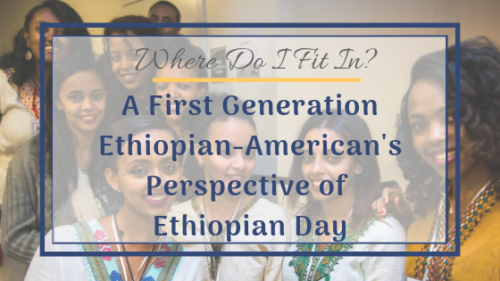
I love the idea of Ethiopian Day! Celebrating our culture with other proud Habesha. Eating sambusa or tibs and injera (though you can’t really beat my mom’s home cooking). Getting to see what new hager libs styles will be for sale. I get excited to see the skista dancers and see some new moves that I hope will help my horrible skista. But most of all I can’t wait to include my children in their heritage.
A Dream Deferred
But somewhere between the first flyer and the day of the event, the great idea of Ethiopian Day doesn’t seem to manifest just as I imagined.
This year I participated as a vendor partnering with Reaching Families Advocacy and Support Group to promote my Let’s Learn the Amharic Alphabet book. Which means that I got there early to set up and stayed til the very end.
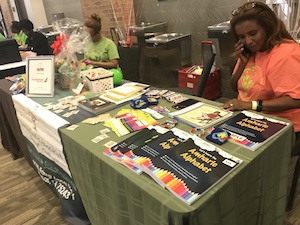
I saw the volunteers and the effort that they put into organizing such a large event. I know it is not easy to organize Ethiopian Day. The volunteers are not professional event planners, they are people like me that just love Ethiopia.
But when the event doesn’t start on time. When there so few activities for the children that they are all running around acting crazy. When the food is not there on time, it can loose a little of its luster.
But the biggest reason why the idea of the event is not realized is I don’t know where or even if I fit in.
It’s Not All Bad
I love that Ethiopian Day and really any event from a wedding to a funeral is a time for people to reconnect.
And it is not that I am lonely or alone during Ethiopian Day. There were so many people that have known me for so long and of course to hear the standard “wow, you have grown up.” (Granted I am really BAD with names and so sometimes it can be a little awkward.)
But though I have changed over the years, it seems as if this community hasn’t changed much. The faces familiar to me are fewer but it is still the same kind of faces.
The Faces of Ethiopian Day
“What faces do I see?” you ask.
I see people like my parents. Those that grew up in Ethiopia and came to the US with young children or to find a fresh start for themselves. What my nieces and nephews would label FOBs (Fresh off the Boat). This group may have come 40 years ago like my parents or just last year. That is who I see.
Unfortunately, what I do not see in the crowd of people that were there at Ethiopian Day is more people like me. And when I mean people like me, I mean first generation Ethiopian-Americans that either came here when they were young or that were born here and now have young families of their own or are now young professionals.
Where are we? Why are we not volunteering or at least attending?
As I was walking around the civic center before and during the event, one of the things that stuck out to me is that this event seems so exclusive. It does not seem to include or have programs geared towards the whole Ethiopian Community. But then I guess it would depend on how you define the Ethiopian Community.
And that really is the crux of the question.
Who is the Ethiopian Community?
Is the Ethiopian Community only those that were born in Ethiopia, that can read and write Amharic, and that can speak Amharic proficiently, like my parents?
If this is the only definition of the Ethiopian Community, how about the children of the aforementioned? Are they part of this community? Because they may or may not meet the criteria laid out above.
I am a child born to Native Ethiopians. We came to Texas when I was just 5 years old. I speak Amharic, although it may not be perfectly. I have taught myself to read Amharic but could not say that was the case even 2 years ago.
Many of my friends that I grew up with are very similar. They also were born to Native Ethiopians. A lot of them do not speak Amharic at all. (They may be able to understand it, but not speak it). They definitely do not know how to read or write Amharic.
How about my children? Are they part of this community? They were not born in Ethiopia. Their father is not Ethiopian. They do not really know Amharic (we are working on that though).
How about those Ethiopian children that have been adopted by American families? Are they part of the Ethiopian Community? Are the parents that adopted them part of the Ethiopian Community?
Who is the Ethiopian Community?
In my opinion it is all of the above. But in the minds of my parents generation or other native born Ethiopians, I am just not sure if they count everyone mentioned above as part of the Ethiopian Community. And you can see that in how events like Ethiopian Day are planned and presented.
Words Have Power
One of the main things that stands out to me as I was walking around the event, is that almost everything is in Amharic. Most of the signs, vendors, most if not all of the presentations and speeches are in Amharic.
Language is a huge part of culture. I get it. That is why I am trying to teach my kids Amharic. BUT. If we want to be inclusive to native Ethiopians, their children, and even those that may just be curious about the culture, then we can’t exclude those that do not speak Amharic by having everything in Amharic.
That does not mean we don’t speak or have information in Amharic, but we should include English. Why not have the website and facebook about the event in both Amharic AND English. The program (and there needs to be a program so people know what to expect) should be in Amharic AND English. But most importantly the presentations need to be in BOTH Amharic and English. It is so disengaging to walk into the auditorium, ready to learn and experience the Ethiopian culture, and not be able to understand what is being said.
Words have power. In this case, words have the power to include or exclude.
Do We Need to be Judgemental?
And if it is not exclusive enough with Amharic being the only language spoken at the event. There is also an attitude that if you don’t speak Amharic then you are not Ethiopian enough.
As I said earlier, I was there as a vendor. And yes, I know Amharic, but it is not perfect. It was very interesting how many people looked down on me because I may have stumbled over a few words or phrases. In fact, one person was interested in interviewing me about the book I had written but said the interview had to be in Amharic.’
Why? Why does it have to be in Amharic?
Am I less Ethiopian if my Amharic is not perfect? Am I less Ethiopian if I don’t speak Amharic?
I wrote Let’s Learn the Amharic Alphabet because there are so few resources to learn Amharic even if you wanted to learn Amharic. And no I may not be an Amharic linguist or even an Amharic teacher. But what I have is a heart for my culture. I saw a need for people like myself and children that have a desire to learn. And I took the time and effort to create a resource by doing research and reaching out to native speakers and scholars so that need might be met.
It is not easy to learn Amharic here in the US. When I was growing up there were not any Amharic classes. (There are some now.) But that does not mean that I love my culture any less. Or that I don’t want to feel like I am part of my community.
Ethiopians are forgiving if the person is their own son or daughter that does not know how to speak, but very critical if others don’t know how to speak.
This has to stop. We have to stop alienating our children from our community.
After a certain age, children don’t want to come to Ethiopian events. The exclusivity and judgement cloud out the value in having events like Ethiopian Day.
Nobody wants to feel criticized or not valued. I want to feel like I fit in. And I am sure that I am not the only one.
What Do We Have to Gain by Being Inclusive?
Let’s start with what we have to loose if we do not broaden our view of who is part of our community.
What we loose is our sense of unity. We become fractured. Ethiopians, from the time of the Battle of Adwa, know that we are stronger together. We were able to overthrow the forces of colonization by standing together. The same is true now.
First of all, we as first generation Ethiopian-Americans can learn more about our heritage and culture from Native Born Ethiopians. As Native Born Ethiopians, you see Ethiopia for what it is. You have the stories, the traditions, the heart of Ethiopia within you.
On the other hand, Ethiopia as a whole, can benefit from the knowledge, education, skills, and perspective that the Ethiopian Diaspora can bring back to Ethiopia to make it great. Globally, we need the strength that comes from our diverse experiences, education, and perspective to make Ethiopia strong.
Ethiopian Day can also benefit from these same skills and perspectives to make a day where we celebrate our culture extraordinary.
Do you feel like you are part of the Ethiopian Community? What can community leaders do to be more inclusive during Ethiopian Day and other events? What can I do as a First Generation Ethiopian-American?
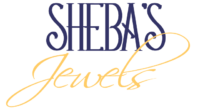
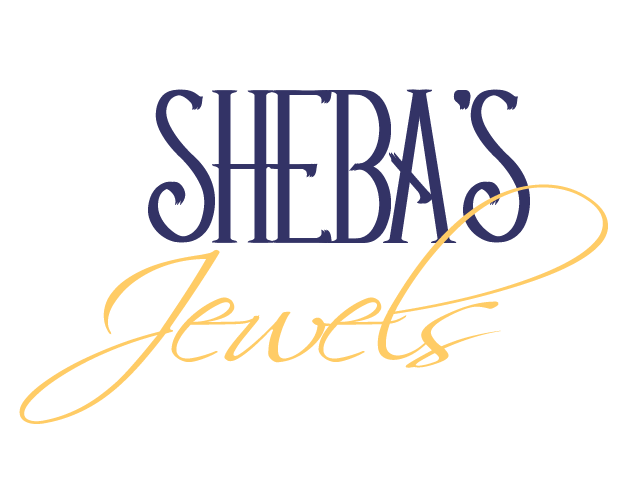
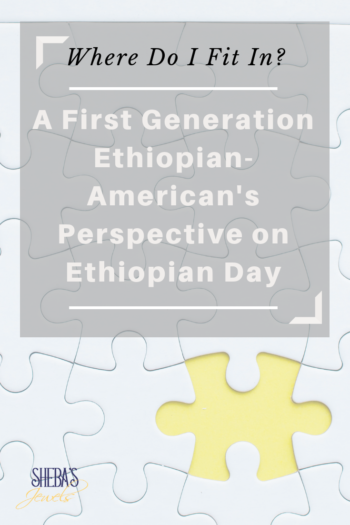
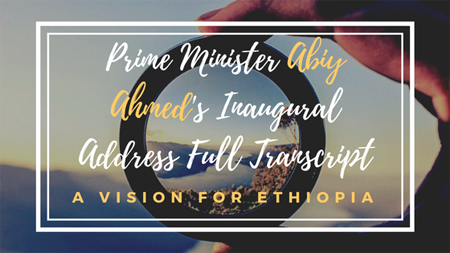
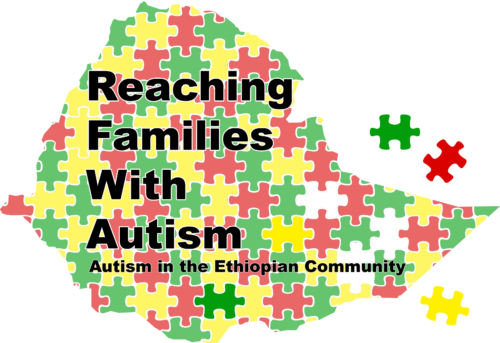
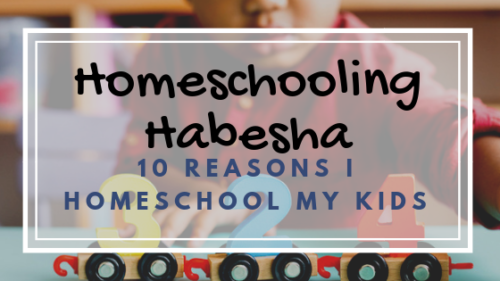
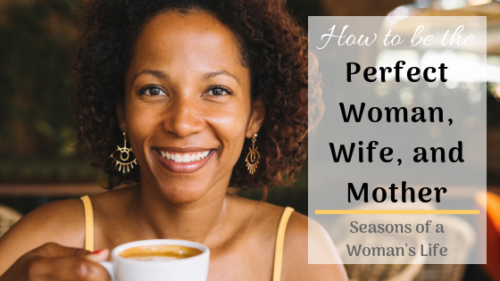
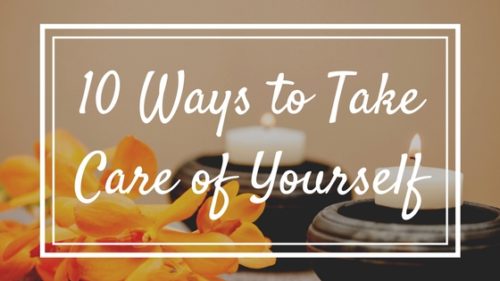
I don’t know how I stumbled on this but it is nice to know I am not the only one going through the exact same thing.
I have spoken to a lot of us first generation Ethiopian Americans and we have a lot of the same experiences. In Dallas we have started a Young Ethiopian American Ambassadors group to help the next generation of First geners not have to struggle like we did and to feel connected.